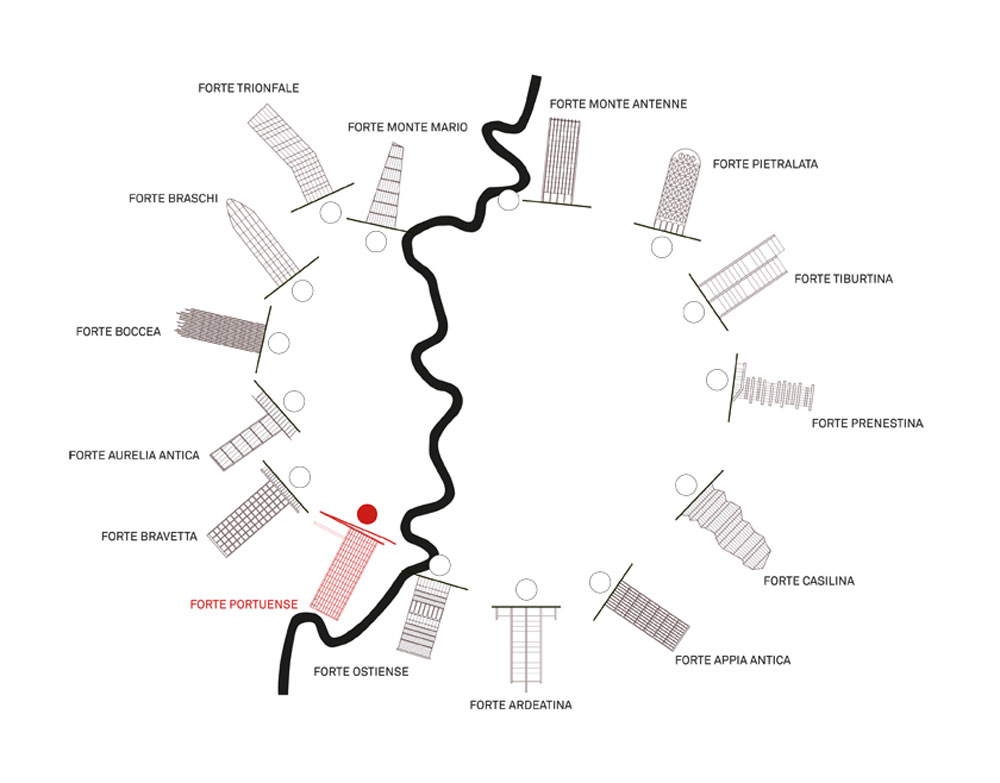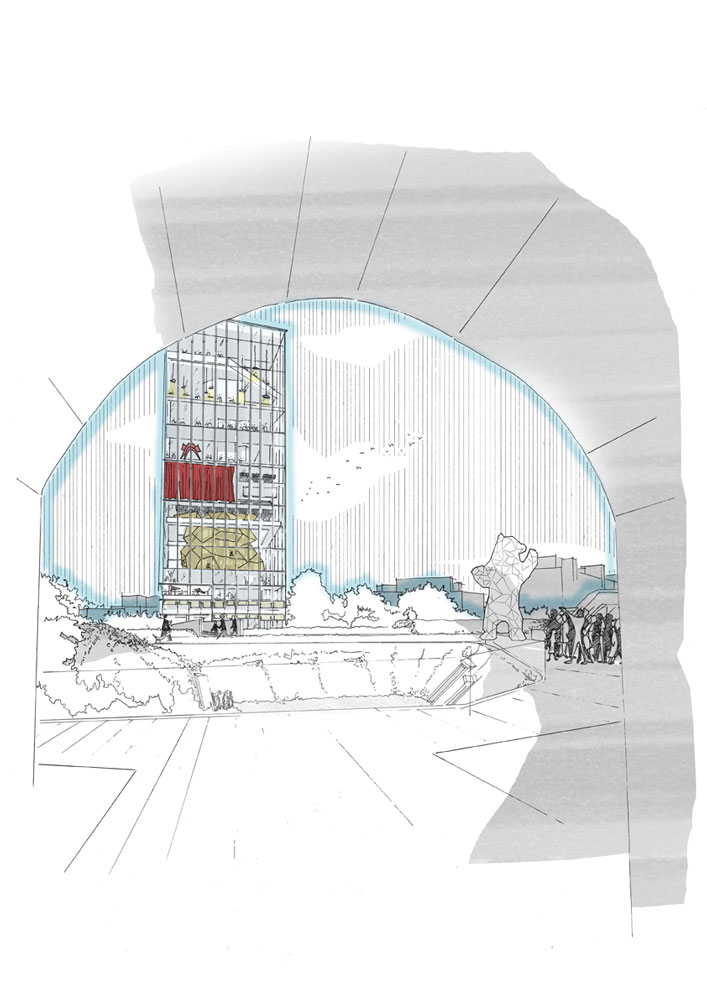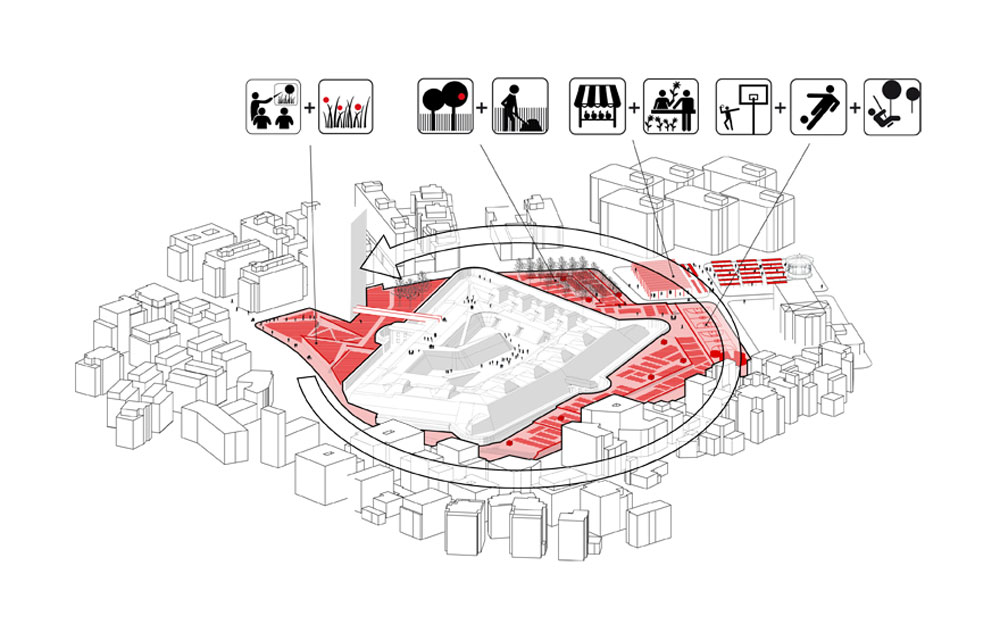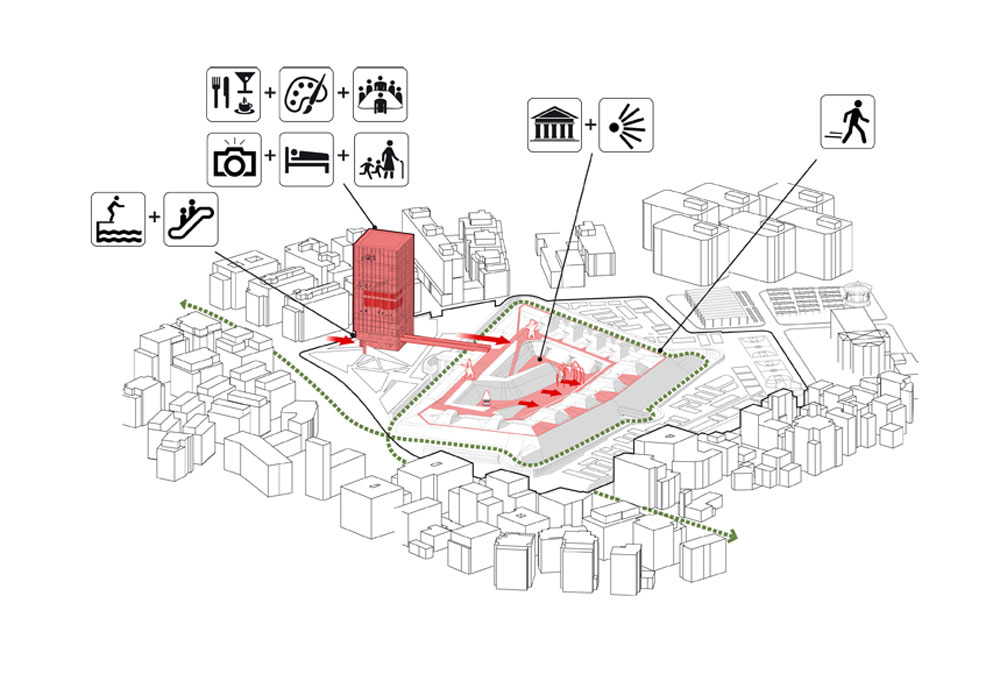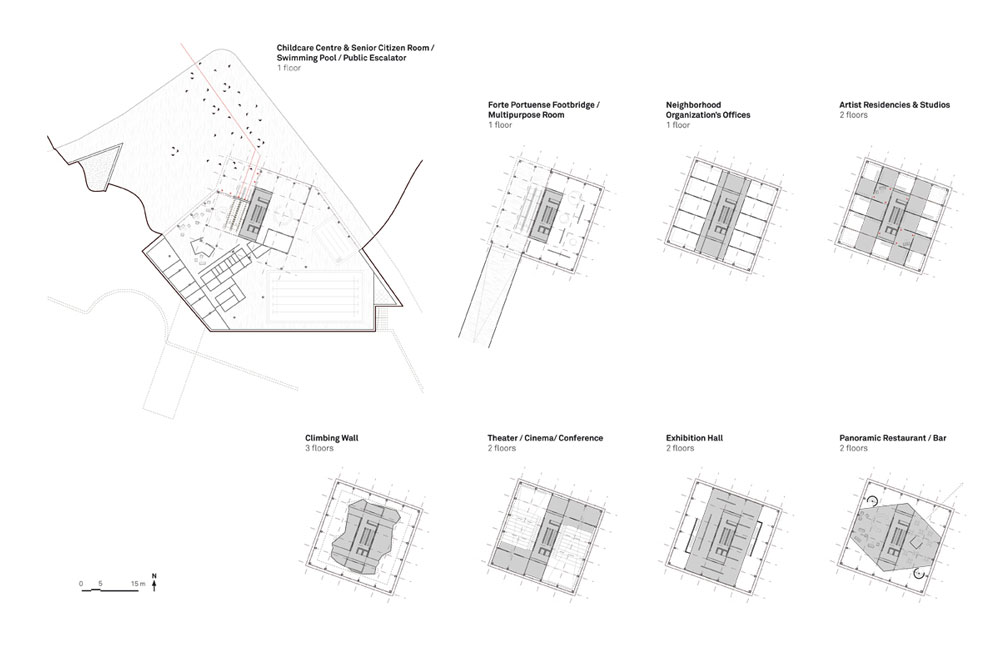☉ Rome Community Ring is a proposal by Bien Urbain - Atelier d'architecture for Young Architects Competitions in 2015. It is located in Rome Italy in an urban setting. Its scale is large. Key materials are metal and glass. Review the 2 proposals for the same competition.
An event on the neighborhood scale, the fort imposes a presence because of its suggestive aesthetic and its fringes, unbuilt equivalent. Inventing its transformation, it’s confronting the monument and projecting functions for those depreciated fringes. To sum up : how to reveal a place whose initial military vocation created a particular symbolic and physic space, without deteriorating its qualities ?
Beyond the specific Forte Portuense issue, the question interrogates the futur of a structure for a long time integrated in a larger network. This relationship, which is weaker those days, is a major interaction on a metropolitan scale. The proposed transformation must consider the existence of fourteen others forts and integrate them in a same approach while respecting the different sites specificities.
Beside the existing duality (a built space with a strong identity versus under-exploited wastelands) we propose to add a third element in order to reintegrate the fort in the city. In the same time : a totem which supports the distinctive identity of the site, a place to welcome spécific functions and a link between the different forts. Every one of them receives a totem with particular shape and functions (adapted for the needs of the neighborhoods) but a common intervention philosophy.
The fort is dedicated to strolling and uses truly linked with its specific morphology (underground passages, massiveness) and its particular aesthetic. We imagine exhibitions, with an obvious valorization of works of art confronted to a such extraordinary place.
The glacis, as a part of its military efficiency, is closely interrelated to the fort. Released from the few varied existing constructions, thoses grounds get their unbuilt characteristic back and are opened to shared uses, on a neighborhood scale. Taking advantage of this non aedificandi area, an urban farming is developped, with fields, orchards and vegetable gardens.
The totem, little tower at the neighborhood scale, welcomes all the programs dedicated to the inhabitants specific needs. Generic volume, the tower offers a good flexibility for uses and organization, thanks to a drifted structure and an optimized circulation core. It welcomes offices for local associations, an indoor climbing wall, artist residencies, auditoriums and a restaurant with a view on Rome downtown.

